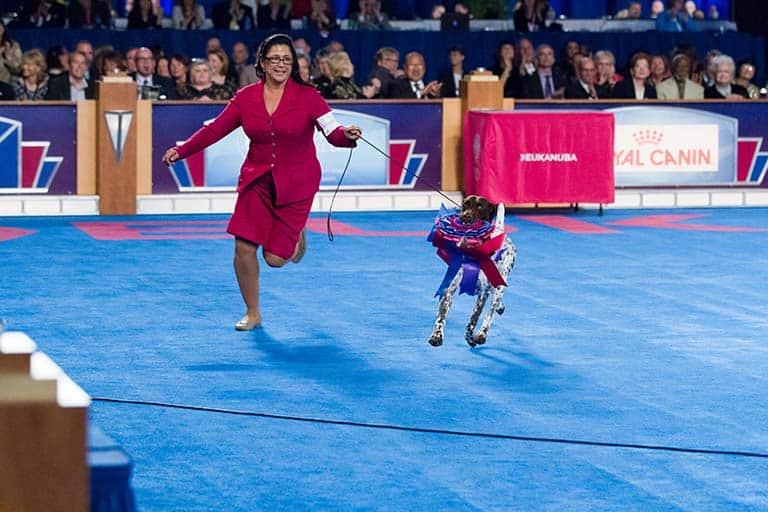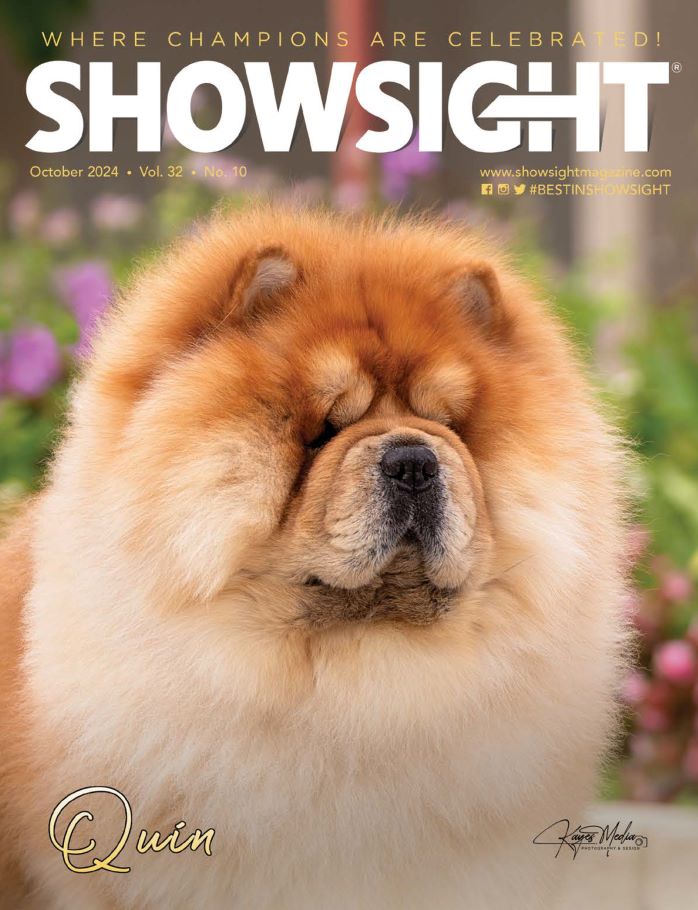THE RELATIONSHIP BETWEEN MAN AND THE SPORT THROUGHOUT HISTORY
It is February 2022 and winter sports are about to take center stage with the Winter Olympic Games, being held this year in Beijing, China. Many of the athletes have been training their entire lives for the opportunity to compete in the Olympics and to fulfill their dream of an Olympic medal. They compete because they love their sport and they love the competition.
As the athletes train and dream, the outside world of COVID and world politics again tries to use the Olympic Games themselves to promote various agendas not related to the sports themselves. It is unfortunate, but in the world in which we live, agendas have taken over many of life’s simple pleasures.
We have seen it in our own sport, with COVID shutting down many shows for over a year. Meanwhile, the states and various politicians continue to have an impact on many shows as we move forward into the future. This reflects on how the world today has put restrictions on what we can do and how we can do it.
In spite of all the interference by outsiders, the Olympic Games (much like our sport of purebred dogs) is about people from all over the globe training and competing—simply because they love it.
THE EARLY HISTORY OF SPORT
I think it would be safe to say that since man’s earliest time, there has existed some type of competitive sport. It may have originated from something as simple as a foot race between two children or possibly a hunting competition between two hunters in a tribe or a family. But it is likely that man has always had a competitive instinct to be the best at something.
When looking at the history of various types of organized sports or competitions, you can go back to ancient times and start with the Olympic Games. Though its history is part of many myths and legends, the origins of the Olympics are believed to have taken place in Olympia, a district found in Southern Greece. The Games are better known as Olympiads (an Olympiad was considered the four years between Games). They began in 776 BCE and took place at least two decades before the founding of Rome. The founding of Rome can be dated “OL. 6.3” or translated as the third year of the 6th Olympiad.
It is believed that the ancient Olympic Games lasted for about 10 centuries until 391 AD, when Emperor Theodosius I ended the ancient Games. For the Ancient Greeks, the Olympics were not just about sports. They also served as a religious event held on the temple site of Olympia, which was dedicated to Zeus. The site held a gold and ivory statue of the king of the gods. The statue, by the great Greek sculptor, Pheidias, stood 42 feet high and was one of the Seven Wonders of the Ancient World.
The main sporting events in those early Olympic Games were: Boxing, Discus, Equestrian Events, Javelin, Jumping, Running, Wrestling, and other events that were added or removed over the history of the Games.
ROME: GLADIATORS, CHARIOTS, AND
THE CIRCUS MAXIMUS
It is known that the Romans were great fans of sports of all types. In the 6th century BCE, the “Circus Maximus” was a chariot racetrack built in Rome. It was used for all types of Roman games and gladiator fights. It is believed to have hosted its last chariot races in the 6th century. As with many ancient buildings and towns, mother nature ultimately covered the Circus Maximus over numerous centuries. The site was partially excavated in the 20th century and then remodeled. Today, it continues as an important public space, hosting music concerts and rallies.
During the 1st Century AD, following a fire in 64 AD, the Circus had an estimated capacity of 150,000-250,000 spectators. Just think about the largest stadiums in the world today and think about that in comparison.
Most of the documented history of sport, going back at least 3,000 years, shows us that early sports often involved the preparation for war or training as a hunter. It was, however, the Ancient Greeks (with the first Olympic Games in 776 BC, and later, the Romans) who introduced formal sports competitions to
the world.
SPORT IN THE MODERN WORLD
Throughout the many centuries that followed those early games, a variety of sports and competitions grew throughout the world.
Cricket, for example, originated in South-East England sometime in the late 16th century, and by the 18th century it had become the National Sport of England.
Alexander Cartwright of New York is credited with creating the baseball field in 1845 as we know it today. Mr. Cartwright and the members of his New York Knickerbocker Base Ball Club devised the first rules and regulations that became the accepted standard for the modern game of baseball.
Believe it or not, the first formal rules for basketball were devised in 1892. Initially, the players dribbled a soccer ball up and down a court of unspecified dimensions, and baskets were first introduced a year later in 1893.
The origins of rugby can be traced back over 2,000 years to a Roman game called “harpastum” (from the Greek word for “seize”). But unlike soccer, in which the ball is propelled by the foot, in rugby it is also carried in the hands.
American football as we know it can be traced back to early versions of rugby football. Walter Camp, a Yale University athlete and coach, is considered the “Father of American Football.” Camp introduced many changes and set rules for the line of scrimmage, and for down and distance, as well as additional rules for passing and blocking that led to the game we have today.
Golf can be traced to Scotland during the 15th century. It was the golf course at Leith (near Edinburgh) that first published rules around 1682. Nearly a century later, in 1754, the St. Andrews Society of Golfers was formed. The Society began annual competitions based on the rules established at Leith. Stroke play was introduced in 1759 and the first (now standard) 18-hole course was constructed in 1764.
Throughout history, new games, sports, and areas of competition have filled our lives to the point where you now have hundreds of thousands of various clubs, leagues, and levels of sports that include people of all ages, nationalities, and degrees of abilities—from amateur to professional.
Throughout history, new games, sports, and areas of competition have filled our lives to the point where you now have hundreds of thousands of various clubs, leagues, and levels of sports that include people of all ages, nationalities, and degrees of abilities—from amateur to professional.
SPORT AND OUR CANINE COMPANIONS
Did you know that “lure coursing” is probably the oldest of all sports done with a dog, and its popularity can be traced to both the ancient Greeks and Romans? In fact, by the Middle Ages, ownership of sighthounds in most countries was prohibited by law for all but the aristocracy. England’s King Canute passed a law that said Greyhounds could not be owned by any person inferior to a gentleman in rank. By the reign of Elizabeth I, coursing was so popular that Elizabeth directed her Earl Marshal to develop the first rules for coursing. The resulting book, The Laws of the Leash, laid out how gazehounds should be handled on the course and how to judge which dog won the match.
Dog shows as we know them would not arrive until the middle 1800s, even though breeders and owners probably had a variety of ways in which they compared their stock.
It wasn’t until 1859 that the first English dog show was held in Newcastle, Northumberland, England. The best-known show in England is Crufts, which has been held annually since 1886—nine years after the inaugural Westminster Kennel Club dog show.
The first formal dog show in the United States was held in 1877, sponsored by the Westminster Kennel Club in New York City, and is still today probably the most well-known show in the world of dog shows. Thinking about all sports, Westminster is the second-longest continuous sporting event in our country, second only to the Kentucky Derby. Also, just like the Derby, when COVID threatened to end the streak, the WKC found a way to move the date, and the site, in order to preserve the history and traditions of nearly 150 years.
Bird Dog field trials trace back to Britain in 1866, with America’s first recorded field trial being held in 1874 near Memphis, Tennessee. In the early years, field trials were under the auspices of “The American Field.”
SPORT: LIFE’S GREAT DIVERSION
Most people have, at some point in their life, played a sport or became involved in something that kindled the competitive juices inside all of us. T-Ball grows into little league, high school, and possibly college ball, maybe the minor leagues, or in the rare instance, a major league career. For some who continue to love the game, there is slow pitch softball, fast pitch softball, men’s, women’s, and even co-ed leagues where one can continue to compete until they finally can no longer physically compete or choose to stop. The same is true in golf, basketball, and to a lesser degree, in football and some other sports.
The number of events and competitions that are available to people today is mind-boggling. In addition to all the major sports, there are numerous games, cheer and dance competitions, and even a variety of hobbies that allow each of us to compete on some level for as long as we can. Most of these competitions give us a great opportunity to take our minds off work and other issues, giving us a form of relaxation.
Many people play golf and tennis well into their 80s and beyond. Man’s love of sport is universal and most of us have teams or individuals that we cheer for and attend games, or follow in many different ways. Our favorite team might be from the city where we grew up or currently reside. It could be the high school, college, or university we attended, or possibly a team that has a favorite player on it. Maybe it’s just because we like the team’s name or logo.
A SPORT MANTRA FOR ALL
The Olympic motto is “Faster, Higher, Stronger—Together.” For centuries, the Olympic Games was a competition between amateur athletes of the world and the nations they represented. The Olympic movement’s creed was inspired in July 1908 and it reads, “The important thing in life is not the triumph, but the fight; the essential thing is not to have won, but to have fought well.”
Read those words: “The important thing in life is not the triumph…” and a few words later, “…but to have fought well.” How many times in life has losing led to poor sportsmanship and harmful behavior that hurts others? If you have ever watched the “Special Olympics” you have probably witnessed some of the best sportsmanship on display, by athletes with limited capacities and a true love of just being able to compete.
The Olympic creed can be traced to I Corinthians 9-24-27: “Do you not know that in a race all the runners run but only one gets the prize? Run in such a way as to get the prize.”
The creed and motto are meant for the athletes to embrace the Olympic spirit, because thousands of athletes will compete with the vast majority having no hope of winning. Most know they don’t have the strength or ability to win outright, but the desire to compete and be a part of it satisfies their inner desires. As we know, the Olympics now feature professional athletes along with those athletes that are competing just because they love the game.
Whether professional or not, most people in any type of competition are in it for “The Love of The Game.”
The creed and motto are meant for the athletes to embrace the Olympic spirit, because thousands of athletes will compete with the vast majority having no hope of winning. Most know they don’t have the strength or ability to win outright, but the desire to compete and be a part of it satisfies their inner desires. As we know, the Olympics now feature professional athletes along with those athletes that are competing just because they love the game.
THE ATHLETE IN ALL OF US
For most of us, the sport of dogs is one of great passion and dedication. Just like the athlete in all of us, we do it for the love of the game.
For many, the most difficult part of any sport is when you realize that you can no longer compete because of a decline in physical or mental capacity. I know. I played church league softball and basketball until the age of 50, when mother nature simply said, “It’s time.”
In the sport of purebred dogs, we have a unique opportunity to continue to compete at a high level for a very long time. We see people of all ages, and those with a variety of athletic abilities and limitations, being able to compete on a somewhat level playing field. We have folks in motorized wheelchairs showing dogs, as well as people with other disabilities, competing regularly. For some exhibitors, when the physical strain of running becomes a problem, they simply go to a smaller breed so that they can continue to do what they love.
Many people get into the sport of purebred dogs a little later in life. Maybe the children have grown and left the nest, so they are looking for a venue in which to compete with their four-legged friends. The venues and possibilities are endless: Conformation, Obedience, Field Trials, Agility, Lure Coursing, Dock Diving, Scent Work, Barn Hunt, and so on. We have an area of competition to fit everyone—and every age—who wishes to compete regularly or on a limited basis.
We often hear the naysayers proclaim that our sport is dying. I don’t believe that. Does it need a little adjusting? Better Sportsmanship? Absolutely! I believe that as long as Man and his best friend enjoy the competition, the sport will continue… simply because of our “Love of the Game.”
Throughout history, new games, sports, and areas of competition have filled our lives to the point where you now have hundreds of thousands of various clubs, leagues, and levels of sports
that include people of all ages, nationalities, and degrees of abilities—from amateur to professional.
The creed and motto are meant for the athletes to embrace the Olympic spirit, because thousands of athletes will compete with the vast majority having no hope of winning. Most know they don’t have the strength or ability to win outright, but the desire to compete and be a part of it satisfies their inner desires.
Featured image from AKC.










